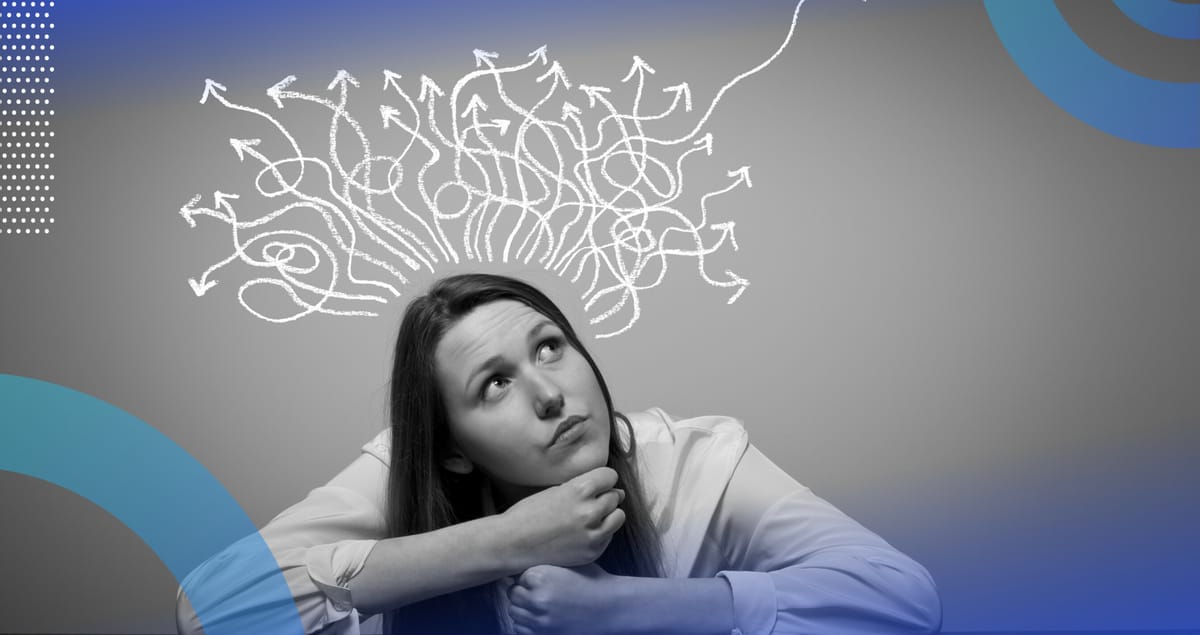 Why do we think the way we think? Why do we feel the emotions we feel? And why do we most often act in a mechanical, unconscious way?
Why do we think the way we think? Why do we feel the emotions we feel? And why do we most often act in a mechanical, unconscious way?
The wisest thing to do is to realise that we get lost in our thoughts, we get completely absorbed in obsessive thinking. In our heads, a voice, a grumpy general, growls, shouts, criticises, moralises and dictates: we are in internal dialogue with ourselves.
We collapse under the weight of the thoughts swirling in our minds, "What will happen tomorrow? What will happen to me? What if things had been different in the past?"
When we dwell on our past or dream about the future, we are not living in our bodies. We are not aware of ourselves, we are not here and now where we are. We are not living in the life that is unfolding, that is now. And as these mindless, hazy moments become more and more frequent, our consciousness becomes more and more blurred: we slowly go mad.
Have you ever thought about what it means to "go mad", to "go crazy"The recipe for madness is: to reject reality as real, to believe instead that the mind's ideas are real. You go mad if you live in your head and not in reality.
In our heads, the little self is constantly chattering, we can't get rid of its voice and its fears and desires override reality.
We are inundated with expectations: the voice of our culture dictates what we can think, how we should feel and what we can do.
We make disguises, masks, and play our everyday roles: the cool one, the smart one, the father, the mother, the lover, the hard-working little man or the leader who wants to control everything.
Some things you wish you had in you. You make a mask of these qualities for yourself, and you present it as a mask: 'Look, this is me. This is how I present myself. This is how I am."
 What you find hateful in yourself you repress, you push down into the unconscious. And in the depths are the repressed unconscious contents: your instincts, your shadow personality and deep social programming. They are churning with great force, waiting for you to collapse, to erupt like volcanoes.
What you find hateful in yourself you repress, you push down into the unconscious. And in the depths are the repressed unconscious contents: your instincts, your shadow personality and deep social programming. They are churning with great force, waiting for you to collapse, to erupt like volcanoes.
From above, the arrows of social expectations rain down, and from below, our instincts, repressed urges and social agendas attack.
Meanwhile, we need to have fun. Of course we are stressed, anxious and unhappy
We perceive ourselves as a shrunken "little me", as an ego in a skin, who thinks without pause, because we have to, because it is important. And we do it so well that even a French philosopher fell for its importance and exclaimed, "I think, therefore I am!"
Each thought demands our attention, each one says: "I am a very important thought!". It is so hysterical in its demands that we have no choice: we have to think unconsciously.
We write scenarios, we strategise, we will, we fight, we defend and we attack - that's the ego, it's easy to experience.
There is a mysterious something about you. A knowledge of yourself.
The knowledge that knows of itself that there is one who knows in you that "I am". Throughout your life, your body's cells have been replaced countless times, your body has been completely renewed many times, your thoughts and emotions have changed, but still..
there is something eternal in you that has never, ever changed: the consciousness that knows itself to be, to exist, to be here and now.
It is difficult to describe in terms of concepts, but easy to experience.
If we can learn to relax physically and mentally, to stem the flow of our thoughts, to turn our attention inwards - to ourselves, to our conscious "I" - we can experience it easily. The key is this: to experience it easily, spontaneously, naturally.
This is our soul, this is our human spirit, this is our consciousness - whatever you want to call it. This is what this practical, help-yourself book is about.
A guide to yourself and your world.
Excerpt from the book "The Mysteries of Consciousness” by Ervin Kery
